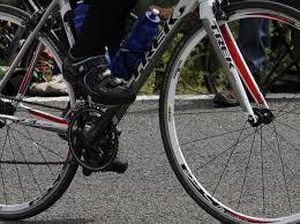Huge rise in cycle thefts across the West Midlands
There have been more cycle thefts in the first six months of 2018/19 than in the entirety of the previous year, it has been revealed.

Between April and September of 2018 there were a staggering 180 cycle thefts from stations across the West Midlands, topping the total from 2017/18 in just half the time.
In 2017/18 there were approximately 160 thefts recorded, which had been an improvement on the previous year’s total of approximately 190.
However the numbers have soared so far this year, figures revealed at yesterday’s (January 7) Transport Delivery Committee have shown.
Several councillors at the meeting were quick to voice their concerns at the growing number of cycle thefts, particularly in light of the West Midlands Combined Authority’s (WMCA) cycle charter.
“I think the concern, certainly the one I have, is that we still have to have a certain number of cycles being pinched,” said Solihull councillor Diana Holl-Allen, the Lead Member for Safe & Sustainable Travel.
And Birmingham councillor Keith Linnecor went a step further, suggesting that cycle owners must work with the police to prevent the number of thefts continuing to rise.
“The only concern I really have is the amount of thefts we’re having,” he said.
“And I just hope there’s something, despite the terrible reductions in our police numbers, that we can do to increase the awareness of thefts of bikes, and hope that people can take the initiative to look after their own bikes better.
“But we do need to concentrate, along with the police that are left, on keeping an eye on people’s bikes. Because the worst thing that could happen is that we put in all this work to get people using bikes and then their bikes are stolen.”
The WMCA’s cycle charter is a region-wide commitment to seeing more journeys in the West Midlands completed by cycle by 2023.
The current goal the WMCA has set itself is for 5 per cent of journeys to be taken by cycle, which would represent a 400 per cent increase on the current level of just 1 per cent.
By Tom Dare





